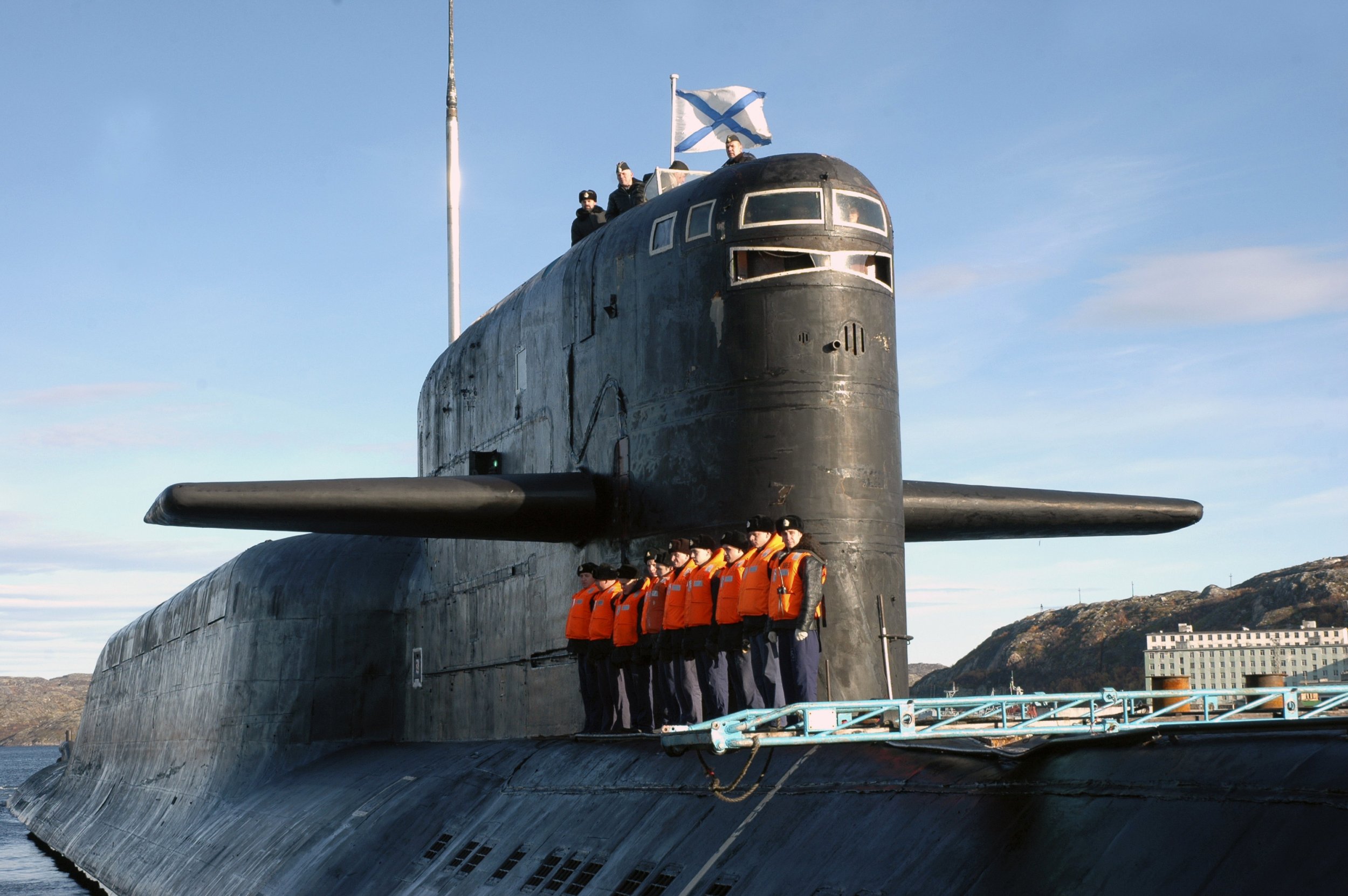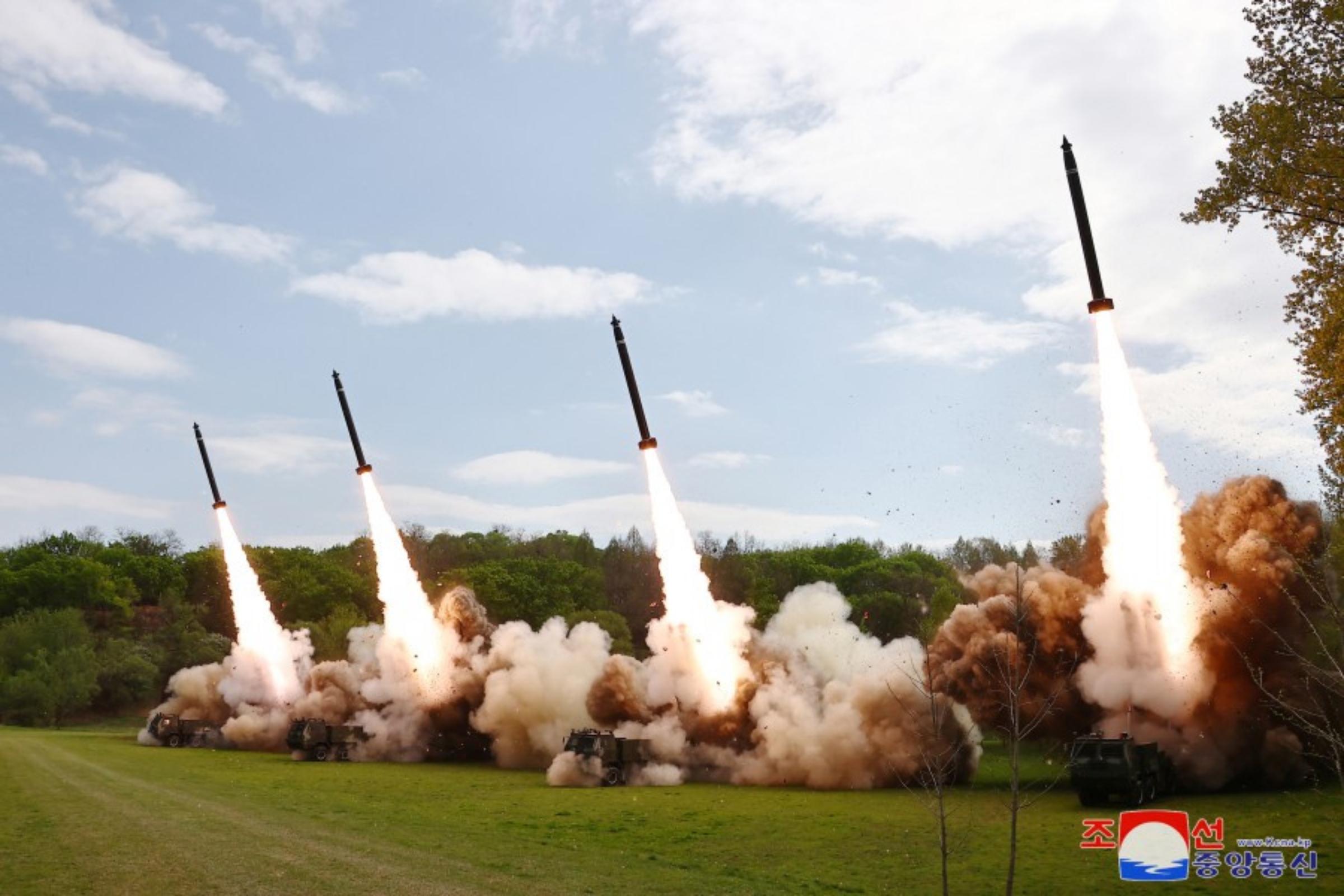
Nuclear units in the Russian navy have engaged in exercises in the international waters underneath the North Pole, according to a statement issued today by the country's naval spokesperson - a move which analysts believe is a thinly veiled response to yesterday's news that NATO is to reinforce its eastern European border with Russia.
"In particular we focused on hazard and threat detection, but also on missile launching and navigation manoeuvres, ice reconnaissance, submerging and emerging from ice, using torpedoes to undermine ice and many other issues," North Fleet captain Vadim Serga said.
Among the units which took part in the exercises were the crews of several Borei-class ballistic missile nuclear submarines, an upgrade of Russia's old Delta 3, Delta 4 and Typhoon nuclear vessels.
The Russian captain also added that the Fleet's crew were given theoretical as well as practical exercises, which were led by vice admiral Anatoly Shevchenko, whose nuclear submarine has ventured underneath the North Pole ice several times before.
"Under his guidance nuclear submarine crews learned about previous voyages under the Arctic, studying issues of tactical maneuvering of weapons," Serga added.
According to the North Fleet spokesperson the aims of the mission which was made public today focused on that younger crewmen becoming better versed in Arctic warfare. Information was not forthcoming about when this recent exercise took place exactly.
However, Elbridge Colby an expert in nuclear force and intelligence at the Center for a New American Security (CNAS), believes the timing of the announcement for the exercise is effectively a "threatening reminder" to NATO of Russia's nuclear capabilities.
"The Russians have been deliberately upping the public side of their nuclear exercises recently for strategic purposes. They have both been increasing the number of exercises they are performing and they have also been making them more public," Colby says.
"On one side this is definitely intended as a show of national strength to the Russian public but it is also designed to demonstrate Russia's strength and nuclear options to NATO and the West."
While Colby says Russia has not made an explicit threat, he believes the country intends to "heighten fear" in the West. "Over the last year the number of exercises has definitely increased. Russia's 'nuclear signaling' has upped quite a bit in the last year or so and we can consider those exercises as specific acts to make it part of the general public's mental picture in NATO member states that Russia is a dangerous opponent," Colby adds.
The Arctic and North Pole is a highly disputed territory due to the huge oil deposits located in the area. Apart from Russia, five other nations currently have claims over the territory, all of whom are NATO members: the U.S., Canada, Norway, Iceland and Denmark.
While the alliance did not comment on Russia's recent activities, a spokesperson at the Norwegian armed forces played down Russia's move.
"We are well aware of the fact that both nuclear capable, and conventional Russian submarines on a routine basis operate both in the waters surrounding the icecap and underneath the northern ice cap," the spokesperson said.
When asked if the Norwegian armed forces were aware of this particular Russian exercise in the arctic, the spokesperson refused to comment, but insisted "It is not a cause of concern".
Russia brought all of its armed forces, stationed in territories adjacent to the North Pole, under one command last year and is currently in the process of building a military drone base 420 miles off the coast of Alaska.
Uncommon Knowledge
Newsweek is committed to challenging conventional wisdom and finding connections in the search for common ground.
Newsweek is committed to challenging conventional wisdom and finding connections in the search for common ground.
About the writer
I am a Staff Writer for Newsweek's international desk. I report on current events in Russia, the former Soviet Union ... Read more
To read how Newsweek uses AI as a newsroom tool, Click here.








